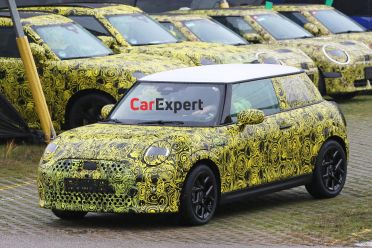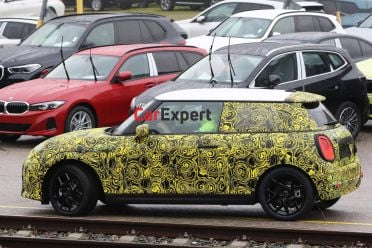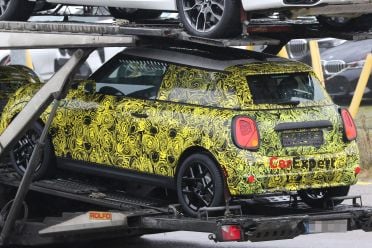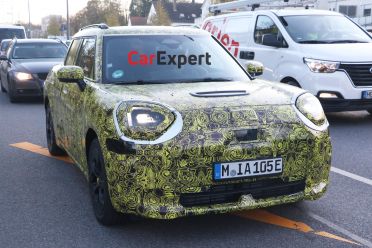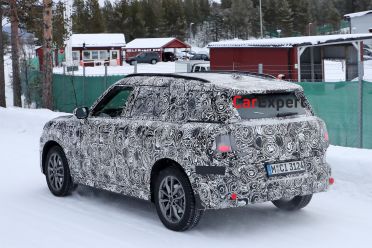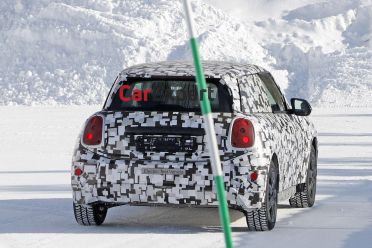Mini’s next-generation petrol hatchback has been snapped testing.
The cars – our team caught three at once – you see here aren’t an all-new model, and are instead reworks of the current model designed to live alongside the new range of electric cars coming from the BMW-owned brand.
Based on these images, the front end of the 3-Door Hatch will be tweaked to more closely match that of the upcoming electric hatch.
The lights appear simpler than those on the current car, with a reworked graphic, and the grille appears to be a new unit.
This particular prototype rides on new wheels, and the trio of vehicles caught by our spy photographer feature a contrast roof in a couple of different colours.
The rear lights are hidden by camouflage, but based on these cars they may be updated to match the new lighting signature/shape we’ve seen on the electric Mini hatch.
The internal-combustion Mini will be sold alongside a heavily overhauled range of cars.
A Chinese-built electric hatch co-developed with Great Wall Motor will be offered around the world, as will a small SUV dubbed the Aceman built on a stretched version of the same underpinnings.
Sitting above that will be the next-generation Countryman, which shares its bones with the BMW X1. It’ll be offered with petrol and electric power, and will be more grown up than the current car.
When it launches, the Aceman will be built in China as part of BMW’s joint venture with Great Wall Motor.
Production of the replacement for the current Mini Electric 3-Door will also be moved to China, while the upcoming Mini Countryman EV will be built alongside its BMW X1 cousin in Leipzig, Germany.
A version of the current petrol-powered 3-Door Hatch will also live on, albeit in heavily updated form.
A report for The Times revealed the production of electric vehicles at the Cowley plant in Oxford, UK, will end in 2023.
“Oxford will always be the home of Mini,” a spokesperson told The Times. The spokesperson said electric Minis built in the UK would need to be made on an assembly line developed by GWM, in place of the existing production lines.
“Oxford is not geared up for electric vehicles,” the spokesperson said. “It will need renovation and investment.”




